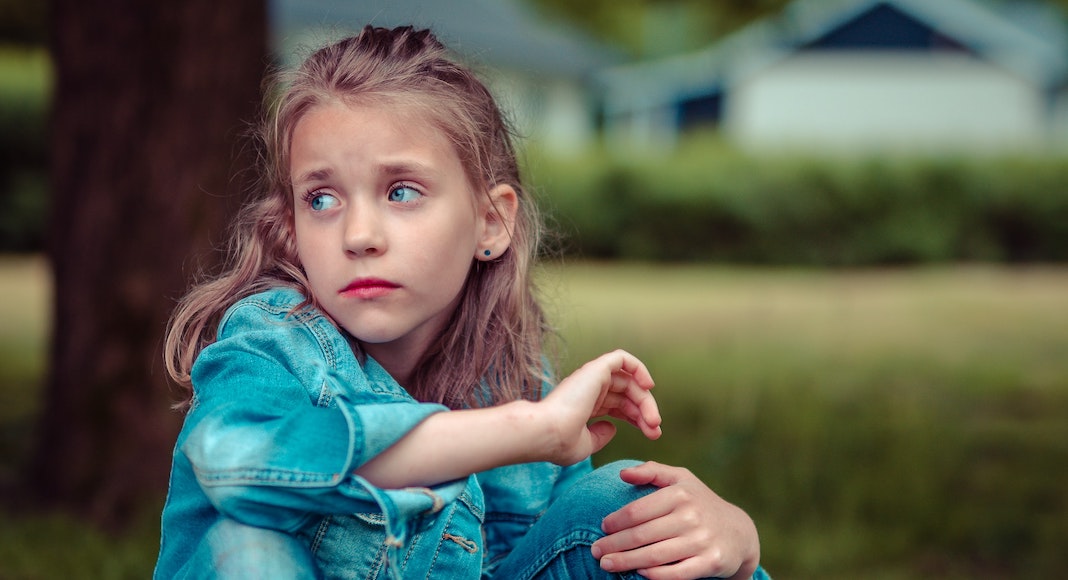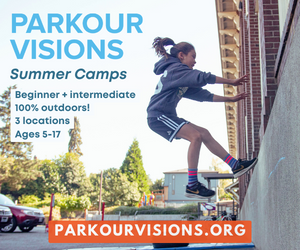It’s easy to minimize the pain of our kids. In our attempts to try and help them move through their distress, we can inadvertently put our own experiences and stories on them, which not only turns the focus to us but expects them to be at a stage in their processing and development beyond their developmental scope.
It’s invalidating and a clear empathy miss.
But in those moments, we don’t mean to be dismissive or hurtful. We want to connect with them. We want to help them feel better. We want to do whatever we can to alleviate their suffering. And in that, we don’t mean to, but we forget that they aren’t us and their scope of understanding and moving through the world is not the same as ours.
 Distance is incredibly powerful. What used to feel all-consuming may now seem minor. We can understand that the middle school relationship wasn’t the end of the world — that we can “find love again.” We can see that sometimes friends fight or say mean things, and you can get past it. We can see that our whole lives weren’t over the one time we got a C, someone was angry we accidentally wore the same shirt or didn’t make the team. Our contextual scope has expanded.
Distance is incredibly powerful. What used to feel all-consuming may now seem minor. We can understand that the middle school relationship wasn’t the end of the world — that we can “find love again.” We can see that sometimes friends fight or say mean things, and you can get past it. We can see that our whole lives weren’t over the one time we got a C, someone was angry we accidentally wore the same shirt or didn’t make the team. Our contextual scope has expanded.
That fight in the 5th grade with your best friend is a distant memory and you see there was resolve, regardless of how it ended up. You now know that kids will say mean things and that it usually has nothing to do with us. We can let go of being picked last for kickball for not being very athletic or forgive ourselves for not being perfect in school. We can see that life goes beyond that moment of pain and distress and that, as we get older, what we thought was the end of the world, isn’t so bad after all.
This is an incredibly important life skill, contextualization and moving through pain. Celebrate that you have put the work in to get here. And then give space and grace for the fact your kids aren’t and we don’t need to try and get them to that place quicker. We just need to learn to listen. 
They aren’t 20 years out of middle or high school. They are in there now. And it’s incredibly difficult, especially in this era. We can’t even begin to understand what it is like to be a kid in a time where you are never more than a few feet from “connection” and the inputs you get on who you should be, what you should look like and how you measure up in the world are innumerable.
It is not reasonable to put the experience of a 45-year-old on a 13-year-old, even if it is to try and protect them from pain. They deserve their heartache and someone willing to be with them instead of trying to dismiss it.
When I was 13, did I think it would all be fine when my boyfriend and I broke up? Absolutely not. We dated for 2 weeks, which was essentially a lifetime. We never talked or hung out outside of a group, but I was sure I would marry this person. And when we broke up, I called our local radio station and made a dedicated request EVERY SINGLE DAY to play N’SYNC’s “I Want You Back,” hoping we would get back together. Did it work? No. Was I okay? No. I was heartbroken. Did I get over it? Yes. But not because someone else told me that there are more fish in the sea, that it was just a middle school boy, or that I would have plenty of other relationships.
All that did was make me feel like I was dumb or invalid or should be “stronger.” If it’s not that big of a deal, then why does it hurt so much? Why can’t I be fine?
What helped was having people who felt my pain in the same way. People who didn’t expect me to be fine and validated how hard it was to be going through this. Sure, I know now it was ridiculous to think that I would marry this person or that what we had was love. But that wasn’t my job at 13. My job was to begin to explore complex emotions and make sense of what it feels like to name and move through them.
It is no secret you love your kids. You don’t want them to be in pain. We just have to consider what help is actually helpful and what help is about our own distress intolerance. So the next time you feel the urge to make it all okay, tell them it’s not that bad and they will be fine or push them to let it go, try this instead:
- Let their worst day be their worst day. It’s not about you. Don’t try and compare. We have been falsely taught that empathy is about connecting with people in our shared experiences. While that is powerful and has a place in some circumstances, this is not empathy. Empathy is about making the space to understand what it is like for them to walk in their shoes and hold space for the feelings.
- Let go of the idea that “pain” is a bad thing. We live in a world of toxic positivity and repression. The goal is to be happy. But happiness is an emotion. Emotions are not good and bad and ever-evolving. Sadness, loneliness, anger, resentment, despair – these are all emotions that exist in this world. They are not bad to experience. They just are. Make space to explore why these emotions are hard for you and see what internal narratives you can let go of to see these from a neutral rather than panicked place.
- Use the power of relative relatability. If your child comes home talking about the pain of not getting the part they wanted in the school play or a kid in school saying something mean about them, remember, this is their present. Instead of thinking about what you went through in middle or high school, consider how this relates to your life now. What is it like when you didn’t get the promotion or job you wanted or when you made a mistake at work? What is it like to fear being judged? What pain do you feel now about loss, rejection and shame? And how can you connect collectively through the vulnerability you can both experience in facing pain?
- And finally, let go of the pressure to fix. The drive to make someone feel better or move them through something is rooted in our own distress intolerance. It’s okay they are in pain. And sometimes, all we need is for someone to validate that it exists and that we are okay to be in it and feeling it right now. Perhaps the greatest gift we can give our kids is not to ask or try and force them to be or feel anything other than what they feel right now. And for us to learn to support their resilience in each process.


















